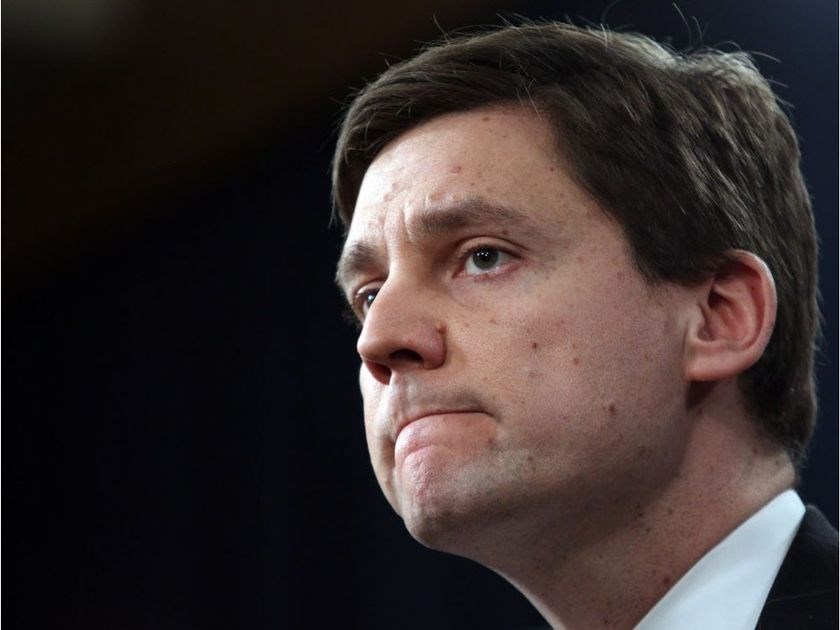Advocates says assessment is dwarfed by bigger issue: the failure of B.C. to meet residents’ basic legal needs
Victoria lawyer Michael Mulligan compares the B.C. government’s review of the way legal aid is delivered in this province to assessing the dinner menu on the Titanic.
“There’s no reference to the iceberg,” he said. “The trouble is the terms of reference are really narrow and there’s a much, much bigger problem. It’s not as if the solution would be to reorganize the deck chairs.”
On Oct. 4, Attorney General David Eby asked lawyer Jamie Maclaren to undertake a review of the way legal aid is delivered in B.C. and come up with a report and recommendations by Dec. 31. Maclaren was asked to analyze how efficiently legal aid is delivered from the point of view of those who use its services.
Three and a half weeks later, Mulligan and Catherine Morris, both members of Lawyers’ Rights Watch Canada, met with Eby and asked him to extend the deadline and expand the scope of the review. They stressed that B.C. has attracted international criticism from human-rights bodies by failing to meet the basic legal needs of residents. The non-profit organization, which promotes human rights and the rule of law, will make a submission to the legal aid review.
“I believe with his background working with the B.C. Civil Liberties Association — and unlike previous attorney generals — he understands the importance of providing adequate legal-aid funding. He saw people who weren’t getting the help they need,” Mulligan said. “But the decision isn’t his alone and there needs to be sufficient political motivation to do something.”
Eligibility for legal aid is based on income. People are connected with private lawyers paid for by the Legal Services Society, a non-profit funded primarily by the provincial government. The society has a budget of about $80 million a year, recently boosted by $12 million from the province for 2018-19. Last year, legal aid made 26,000 client referrals.
In an interview, Eby candidly admitted there is an access-to-justice crisis in the province and said the review is just a start.
“There are infrastructure challenges that follow 16 years of neglect in the system that we have to start building back,” he said. “And that’s the point of Mr. Maclaren’s work? When we’re building back this infrastructure, how do we do it in a way that’s effective from a cost and legal delivery service perspective?”
The government is putting $29 million into legal aid over the next three years, Eby said.
“This is our first significant investment in legal aid in 16 years,” he said.
“A lot has happened in other provinces since then. A lot has happened in terms of the delivery of legal services, especially the marginalized groups, people living in poverty, since then.”
The attorney general said he chose Maclaren, executive director of Access Pro Bono, because of his personal history working with pro bono organizations.
“He’s worked with many people involved in legal aid before the major cuts because many of them drifted into the non-profit world,” Eby said.
“The reason I chose him was because he had access to a lot of those folks and he had personal knowledge of how to deliver a huge amount of legal services to a large number of people with a small amount of money.
“If there was anyone who could identify ways for us to improve what we’re doing, it would likely be him.”
The former Liberal government did several reviews of legal aid, including Leonard Doust’s Report of the Public Commission on Legal Aid in B.C. in 2011. The government understood the political pressure around legal aid, Eby said, but was not interested in putting any money into it.
“The reality is, when we put this additional money into the system, we need to have the infrastructure in place using the money in a way that is short and structured,” he said.
“That’s why it’s a fast review. It’s a short period of time and not a big public inquiry into legal aid. We’re looking very specifically, how do we deliver as much as we can with the money and which models should we be looking at.”
He said the state will never provide sufficient legal aid for every person to have their own lawyer, so the government is taking steps to ensure people can access justice in cases where there isn’t going to be a legal aid program.
But the government has taken steps to deal with serious issues. It is increasing the legal-aid tariff — the rate lawyers get paid — in cases of particular urgency.
It is flying family duty counsel in to Williams Lake, Prince George and other rural and northern communities because of the lack of lawyers. It has increased the number of hours family lawyers can use for general preparation of cases. It has increased duty counsel hours dealing with family law matters in Colwood, Nanaimo, Port Alberni and other B.C. communities.
It has also increased the jurisdiction of the civil resolution tribunal to resolve small claims disputes under $5,000 and strata property of any amount, and is providing counsellors for self-represented people in family court.
The government is also looking at reforms to family court rules to make it easier for self-represented litigants to make their way through the system.
“This is just the start of things. All I can say is we’re working on it,” Eby said.
“I agree we have a ton of work to do in meeting access to justice requirements. It’s not appropriate that our jails are filled with Indigenous people and people with mental health and addiction issues. These are very serious human rights issues that we have to address.”



